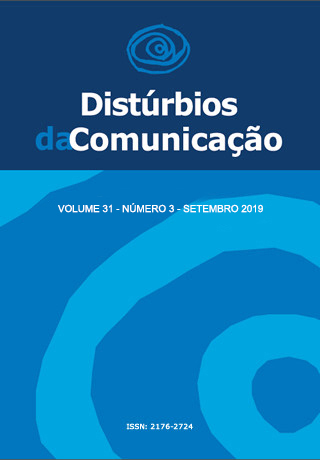Correlation between temporomandibular dysfunction symptoms, deleterious oral habits and symptoms of stress in university students
DOI:
https://doi.org/10.23925/2176-2724.2019v31i3p481-492Keywords:
Temporomandibular Joint Disorders, Habits, Stress, Psychological, Students.Abstract
Purpose: To investigate temporomandibular dysfunction symptoms, presence of deleterious oral habits and stress in college students of Speech-Language and Hearing Sciences, Physiotherapy and Biomedicine undergraduate courses from the first and last years of a University Center; compare the results of the first period and the final period of each course; and verify the correlation between deleterious oral habits, age, sex, temporomandibular dysfunction symptoms and stress symptoms. Methods: Questionnaires were administered to a sample composed by 83 undergraduate students. We used Fonseca’s Anamnestic Index to evaluate temporomandibular dysfunction symptoms; a list with deleterious oral habits; and, to evaluate the stress, Lipp’s Inventory of Symptoms of Stress for Adults. Data were analyzed with significance level of 5%. Results: There was a high prevalence of symptoms of temporomandibular dysfunction in the sample, most of which were mild. There was association with statistical significance between having symptoms of temporomandibular dysfunction and the final year of the courses, supporting object under the chin, lip biting and stress. There was association between the degree of temporomandibular dysfunction and the final year of the courses, the habits of clenching or grinding of the teeth, leaning of the head on the arm, cheek biting and the number of habits performed. The stress diagnosis was correlated with the undergraduate course year. Conclusion: Data suggest a positive correlation between the presence of symptoms of temporomandibular dysfunction, deleterious oral habits and stress in undergraduate students of the last years of health care coursesDownloads
Downloads
Published
Issue
Section
License
Copyright (c) 2019 Deborah Christiny Abrante Godinho, Sandra Raquel Melo, Maria Elizabeth Siqueira Lemos, Renata Maria Moreira Moraes Furlan

This work is licensed under a Creative Commons Attribution 4.0 International License.









